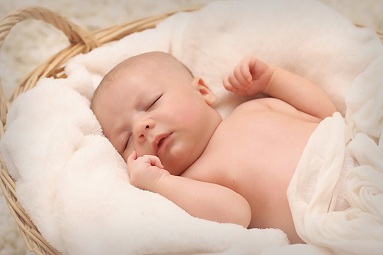COVID-19-Infants: French Meta-Analysis Study Shows That 30 Percent Of COVID-19 Infected Infants Contracted Virus From Their Mothers
Source: COVID-19-Infants Oct 17, 2020 5 years, 3 months, 4 weeks, 1 day, 4 hours, 2 minutes ago
COVID-19-Infants: French researchers from the Division of Pediatrics and Neonatal Critical Care at “A.Béclère” Medical Centre, Paris Saclay University Hospitals have in a new meta-analysis study involving 176 case reports and past studies found that up to 30 percent of all COVID-19 infected infants had contracted the virus from their mothers.

The study was published in the peer reviewed journal nature communications.
https://www.nature.com/articles/s41467-020-18982-9
The study found that environmental exposure to SARS-CoV-2 was responsible for the majority of infections detected in newborn infants in an analysis of 176 reported cases but the findings also suggest that 30% of the reported cases may have been acquired from the mother.
The study team headed by Dr Daniele De Luca performed a meta-analysis of published cases of SARS-CoV-2 infection in neonates (within the first 30 days of life), as defined by at least one positive nasopharyngeal swab test and/or the detection of specific antibodies in the blood.
In total, 176 cases were analyzed, which had been reported up to 30 August 2020. The study team found that 70% of the cases resulted from environmental exposure. Thirty percent were likely the result of vertical transmission (transmission of the virus from mother to baby) and around 9% of the 176 cases were confirmed to be as a result of vertical transmission with infection acquired before or during childbirth.
Importantly 55% of the infants (97) in the analysis went on to develop COVID-19 and the authors note that the clinical symptoms seem to be similar to those reported in older patients, including respiratory (52% of cases), fever (44%), and gastrointestinal (36%), and neurological (18%) symptoms.
Ninety-seven neonates presented with clinical features related to COVID-19. Respiratory manifestations mainly consisted of signs of respiratory failure, such as tachypnoea, intercostal retractions, and rhinitis; neonatal ARDS was not diagnosed in any case. Gastrointestinal manifestations were primarily represented by feeding difficulties, diarrhea, and vomiting, while neurological ones consisted of hypertonia and irritability, but also hypotonia and lethargy, as well as apnea. Cardiovascular features were tachycardia and hypotension. Other manifestations included conjunctivitis, hypothermia and cutaneous rash. Laboratory abnormalities were evident in a minority of cases: 14 (14.4%) and 4 (4.1%) out of 97 neonates presented with lymphopenia and raised liver enzymes respectively. Inflammatory markers (C-reactive protein and procalcitonin) were increased in 15 (15.5%) out of 97 neonates. Lung imaging was abnormal in 62 (64%) out of 97 neonates and consisted of an interstitial-alveolar pattern at lung ultrasound or chest X-ray and ground-glass opacities at CT-scan.One neonate presenting with neurological manifestations also showed bilateral gliosis of the deep white periventricular and subcortical matter, together with signs of cerebral vasculitis, which was not totally remitted at the hospital discharge.
Seven neonates were treated with oral hydroxychloroquine and/or azithromycin, two with intranasal interferon-α1b and one with intravenous remdesivir, oseltamivir and ritonavir/lopinavir, respectively al
l the others received only supportive care. Three out of 176 neonates (1.7%) died for reasons that seem unrelated to SARS-CoV-2 infection.
Upon detailed analysis of infections that occurred at least 72 hours after birth, the study team found that infants in the sample who stayed in a crib next to their mother in hospital (roomed-in) appeared to have a higher incidence of SARS-CoV-2 infections. They argue that if rooming-in takes place, then appropriate hygiene measures and protective equipment should be made available to reduce the risk of transmission as a result of environmental exposure.
The study team also notes that breastfeeding was not associated with SARS-CoV-2 infection and they suggest that viral transmission through milk is rare, if at all. However, further studies are needed to confirm this.
The study team also commented, ”Since a significant proportion of infections are asymptomatic, it has so far been hard to ascertain the disease burden on neonates and the possibility of transmission to healthcare providers.”
For more on
COVID-19-Infants, keep on logging to Thailand Medical News.
